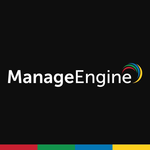What is our primary use case?
I need the product for SIEM, Security Identity Event Management. I also need it for security operations, automated response, as well as mapping adjusting of security components as well. It helps us with how best to look at various events, and orchestrate between various different hyper-scalers.
How has it helped my organization?
The solution has made us more secure and has allowed for more definable mapping.
What is most valuable?
The SIEM is the most valuable feature of the product.
Having a better integration method and then ingesting and mapping the information have been somewhat easier than some of the other tools that I've used previously (other than QRadar and Rapid7).
The initial setup is pretty simple.
The solution is scalable.
Stability has been quite good.
The pricing is pretty decent.
What needs improvement?
The documentation is in definite need of improvement.
There are pieces of it that are somewhat just daunting and there should be better orchestration and automation.
I've done some automation with it, with Terraform, and also with some other sources. If it wasn't so proprietary, that would be ideal.
I'd like to have it so that Splunk integrates better with Terraform and Python.
For how long have I used the solution?
I've used the solution for eight years. I've used it for quite a while.
What do I think about the stability of the solution?
Splunk is probably the best brand in terms of stability. I'd rate its reliability at a four out of five. There aren't bugs or glitches. It doesn't crash or freeze.
What do I think about the scalability of the solution?
The scalability is great. I'd give it a score of four out of five. If a company needs to expand, it can do so.
We have 450 people in our organization that use the product. We've also done this for clients that needed access for over 200,000 people.
We use the solution extensively and likely will increase usage.
How are customer service and support?
The support is okay, however, there are a couple of things that they couldn't figure out and they couldn't help me with automation or stuff like that. It could have been better from there, however, it's not that bad.
Which solution did I use previously and why did I switch?
I've previously used QRadar and it wasn't ideal.
There were certain times I integrated with other solutions too.
How was the initial setup?
The initial implementation is pretty simple and straightforward. It's not too complex. I'd rate the experience at an eight out of ten.
The initial deployment took us about two weeks or so.
The amount of personnel you need for deployment and maintenance tasks depends on the size of the deployment. Typically, it's just one or two people. That said, it needs to be proportionate to certain sizes. Usually, the staff is from procurement or provisioning.
What about the implementation team?
I handled the implementation myself. I didn't need any outside assistance from any integrators. I'm a consultant myself.
What was our ROI?
We've seen quite extensive ROI, however, it's more of a qualitative assessment and I don't have numbers to share. It works well and customers are happy. That's what counts.
What's my experience with pricing, setup cost, and licensing?
It's a little bit more expensive than some of the other tools. It's not as expensive as QRadar. That said, it's more expensive than LogRhythm or Sentinel.
There aren't really other fees beyond the standard costs of licensing.
Which other solutions did I evaluate?
I evaluated other things. I also integrated with other solutions too. I decided to go with Splunk due to the fact that it worked well.
What other advice do I have?
I'm a consultant. I'm also a customer and use it myself.
We use multiple deployment models, including public and private clouds.
We typically use the latest version of the solution.
I'd advise potential new users to get a proper plan. They should have a good partner or someone that can help them and quickly map and orchestrate.
I'd rate the solution at a ten out of ten.
Which deployment model are you using for this solution?
Public Cloud
Disclosure: I am a real user, and this review is based on my own experience and opinions.



















I am agree with you Mr. Joshua Biggley now days splunk have more demand.